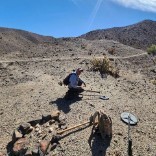Air Testing Vs Ground Testing Coils Your Thoughts
-
Similar Content
-
- 25 replies
- 1,081 views
-
- 6 replies
- 409 views
-
- 42 replies
- 5,372 views
-
- 7 replies
- 13,908 views
-
- 21 replies
- 49,209 views
-
- 5 replies
- 1,296 views
-
-







Recommended Posts
Create an account or sign in to comment
You need to be a member in order to leave a comment
Create an account
Sign up for a new account in our community. It's easy!
Register a new accountSign in
Already have an account? Sign in here.
Sign In Now